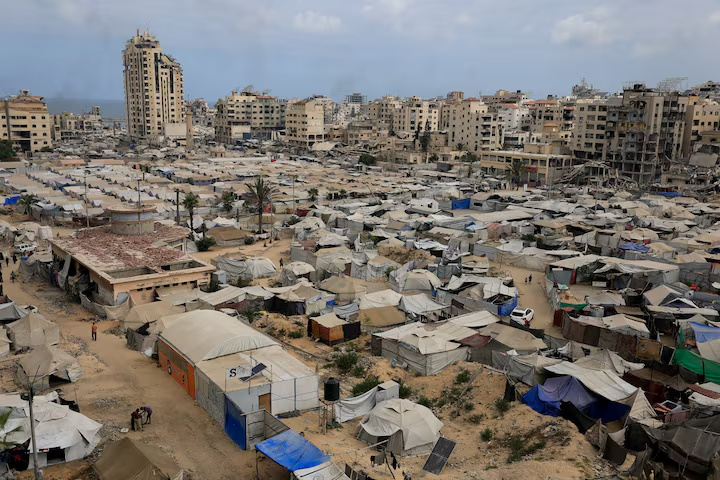Israel’s political-security cabinet has approved a plan to take control of Gaza City, escalating military operations in the war-torn enclave despite mounting criticism from both domestic and international fronts.
Prime Minister Benjamin Netanyahu’s office confirmed early Friday that the Israeli Defence Forces (IDF) would prepare to seize the city while providing humanitarian aid to civilians outside active combat zones.
“We don’t want to keep it. We want a security perimeter… We don’t want to govern it,” Netanyahu told Fox News on Thursday, adding that Israel aimed to hand over control to unspecified Arab forces.
Military Push and Civilian Evacuations
According to Israeli officials, the plan focuses on evacuating Palestinian civilians from Gaza City before launching a ground offensive. While Netanyahu has voiced intentions to extend control over the entire Gaza Strip, the current strategy targets the largest northern city in the territory.
Military chief Eyal Zamir reportedly pushed back against further expansion during high-level security meetings earlier this week. Scenarios under consideration include a phased takeover of areas still outside Israeli control, with advance evacuation warnings potentially giving civilians weeks to relocate.
Reversal of 2005 Policy
A full military takeover would mark a reversal of Israel’s 2005 decision to withdraw settlers and troops from Gaza, though it retained control over the enclave’s borders, airspace, and utilities.
Right-wing factions in Israel have long blamed the 2005 pullout for enabling Hamas to win the 2006 elections and consolidate power.
Hamas Response
Hamas condemned Netanyahu’s remarks as a “blatant coup” against ongoing negotiations, accusing him of seeking to “sacrifice” Israeli hostages still held in Gaza. The group warned that any new governing force linked to Israel would be treated as an occupying power.
A Jordanian official told Reuters that Arab states would only support governance arrangements agreed upon by Palestinians, adding that security should be handled through “legitimate Palestinian institutions.”
Earlier this year, Israel and the U.S. rejected an Egyptian-backed plan to install a Palestinian technocratic administration to govern Gaza post-war.
Hostage Crisis and Humanitarian Toll
Israel believes 50 hostages remain in Gaza, with about 20 still alive. Most releases so far have resulted from diplomatic negotiations, but talks collapsed in July. Hamas has reportedly told mediators that increased humanitarian aid could restart ceasefire discussions.
International concern has intensified following images of emaciated hostages and starving children in Gaza. The United Nations has called reports of expanded Israeli operations “deeply alarming.”
Netanyahu’s government maintains its objective of total victory over Hamas, which launched the war with its October 2023 attack on Israel. However, polls show most Israelis now favor ending the conflict through a deal securing the hostages’ release.







